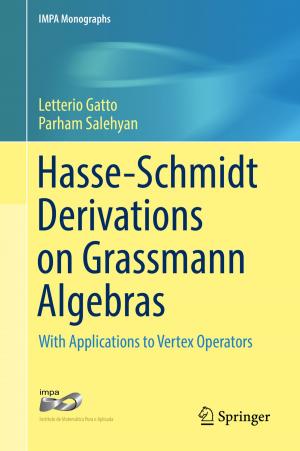Limits of Computation
From a Programming Perspective
Nonfiction, Science & Nature, Mathematics, Applied, Computers, General Computing, Programming| Author: | Bernhard Reus | ISBN: | 9783319278896 |
| Publisher: | Springer International Publishing | Publication: | March 25, 2016 |
| Imprint: | Springer | Language: | English |
| Author: | Bernhard Reus |
| ISBN: | 9783319278896 |
| Publisher: | Springer International Publishing |
| Publication: | March 25, 2016 |
| Imprint: | Springer |
| Language: | English |
This textbook discusses the most fundamental and puzzling questions about the foundations of computing. In 23 lecture-sized chapters it provides an exciting tour through the most important results in the field of computability and time complexity, including the Halting Problem, Rice's Theorem, Kleene's Recursion Theorem, the Church-Turing Thesis, Hierarchy Theorems, and Cook-Levin's Theorem. Each chapter contains classroom-tested material, including examples and exercises. Links between adjacent chapters provide a coherent narrative.
Fundamental results are explained lucidly by means of programs written in a simple, high-level imperative programming language, which only requires basic mathematical knowledge. Throughout the book, the impact of the presented results on the entire field of computer science is emphasised. Examples range from program analysis to networking, from database programming to popular games and puzzles. Numerous biographical footnotes about the famous scientists who developed the subject are also included.
"Limits of Computation" offers a thorough, yet accessible, introduction to computability and complexity for the computer science student of the 21st century.
This textbook discusses the most fundamental and puzzling questions about the foundations of computing. In 23 lecture-sized chapters it provides an exciting tour through the most important results in the field of computability and time complexity, including the Halting Problem, Rice's Theorem, Kleene's Recursion Theorem, the Church-Turing Thesis, Hierarchy Theorems, and Cook-Levin's Theorem. Each chapter contains classroom-tested material, including examples and exercises. Links between adjacent chapters provide a coherent narrative.
Fundamental results are explained lucidly by means of programs written in a simple, high-level imperative programming language, which only requires basic mathematical knowledge. Throughout the book, the impact of the presented results on the entire field of computer science is emphasised. Examples range from program analysis to networking, from database programming to popular games and puzzles. Numerous biographical footnotes about the famous scientists who developed the subject are also included.
"Limits of Computation" offers a thorough, yet accessible, introduction to computability and complexity for the computer science student of the 21st century.















